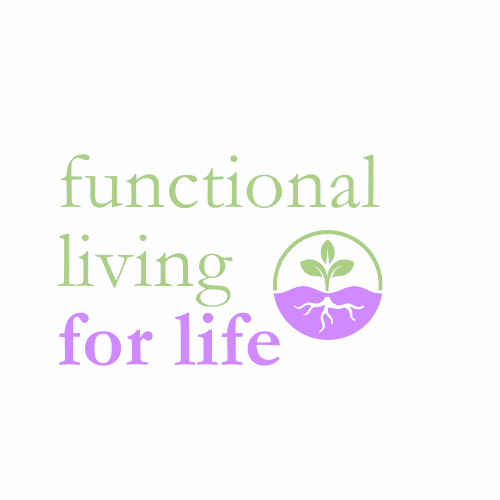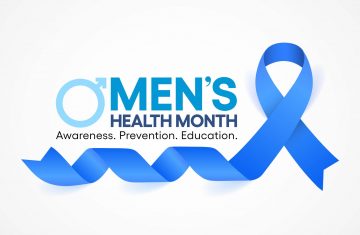Environmental toxins, present in the air, water, food, and household products, pose a growing threat to our health and well-being.
At Functional Living for Life, our goal is to educate and empower clients to understand and mitigate the effects of environmental toxins, thereby promoting optimal health. This article will cover common sources of environmental toxins, their potential health effects, and methods to address them through a holistic approach.
Common Sources of Environmental Toxins

Air Pollution
Air pollution represents a significant source of environmental toxins, affecting both outdoor and indoor environments. The primary sources of outdoor air pollution include vehicle emissions, industrial processes, and the combustion of fossil fuels.
Common pollutants include carbon monoxide, sulfur dioxide, nitrogen oxides, and particulate matter. These contaminants can infiltrate the lungs and enter the bloodstream, leading to respiratory and cardiovascular complications.
Indoor air pollution is also a significant issue, often resulting from tobacco smoke, mold, volatile organic compounds (VOCs) emitted by household products, and off-gassing from building materials and furnishings. Ensuring adequate ventilation and utilizing air purifiers can help mitigate indoor air pollution levels.
Water Pollution
Water pollution occurs when contaminants infiltrate our water supply through industrial discharge, agricultural runoff, and improper disposal of household chemicals. Common pollutants in water include heavy metals (such as lead and mercury), pesticides, herbicides, and pharmaceuticals. Contaminated water can cause health problems like gastrointestinal and neurological issues. Use water filters and be aware of local water contaminants to reduce exposure.

Chemicals in Food
Our food can contain environmental toxins from pesticides, herbicides, additives, and preservatives. Processed foods also often have high levels of artificial ingredients and contaminants. Selecting organic produce, decreasing the intake of processed foods, and paying attention to food labels can reduce exposure to these substances. Growing food personally or purchasing from local, organic farmers are methods to access cleaner food options.
Household Products
Many household products, such as cleaning supplies, personal care items, and plastics, contain harmful chemicals. Cleaning products often include volatile organic compounds (VOCs), ammonia, and bleach, which may cause respiratory and skin irritation.
Personal care items may contain parabens, phthalates, and synthetic fragrances, which have been identified as endocrine disruptors, potentially interfering with hormonal functions.
Selecting non-toxic, natural alternatives and diligently reading product labels can minimize exposure to harmful chemicals found in household products. Implementing simple modifications, such as utilizing vinegar and baking soda for cleaning purposes and opting for fragrance-free, organic personal care items, can have a substantial impact.
Potential Health Impacts of Environmental Toxins
- Respiratory Issues: Exposure to air pollutants can exacerbate respiratory conditions like asthma and chronic obstructive pulmonary disease (COPD). Fine particulate matter can penetrate deep into the lungs, causing inflammation and reduced lung function.
- Hormonal Disruptions: Endocrine-disrupting chemicals (EDCs) present in plastics, personal care products, and pesticides have the potential to affect hormone function. These disruptions may result in various health conditions, such as reproductive issues, thyroid dysfunction, and developmental disorders in children.
- Neurological Effects Environmental toxins, including heavy metals and pesticides, have an impact on the nervous system. Extended exposure to these substances can lead to cognitive decline, memory loss, and developmental delays in children.
- Chronic Diseases Long-term exposure to environmental toxins has been associated with several illnesses, such as cancer, autoimmune disorders, and chronic fatigue syndrome. The build-up of toxins within the body can impair the immune system’s functionality, resulting in sustained inflammation and disease.
Functional Health Approach to Managing Toxins
At Functional Living for Life, we believe in a comprehensive, holistic approach to managing and mitigating the effects of environmental toxins. Here’s how we can help:
- Comprehensive: Testing is the first step in creating a personalized treatment plan. Tests may include blood and urine to detect the presence of heavy metals, pesticides, and other harmful substances.
- Detoxification Strategies Natural detoxification methods may assist in removing toxins from the body. These strategies can include dietary changes, such as incorporating foods like cruciferous vegetables, garlic, and cilantro, and lifestyle adjustments, such as regular exercise, detoxification therapies, and adequate hydration.
- Holistic Treatment Plans: We create tailored treatment plans that address individual needs, incorporating nutrition, supplements, and wellness products to support detoxification and overall health.
- Preventive Measures: Minimize exposure to environmental toxins by using water and air filters, opting for organic foods, and choosing non-toxic household products.
Conclusion
Managing environmental toxins is crucial for health and disease prevention. Reducing exposure and aiding detoxification can enhance well-being. At Functional Living for Life, we help clients achieve optimal health.
If you are worried about environmental toxins affecting your health, book a consultation with me, Jeanene, a Certified Functional Wellness practitioner. We can create a personalized plan for your health goals. Book your consultation here




